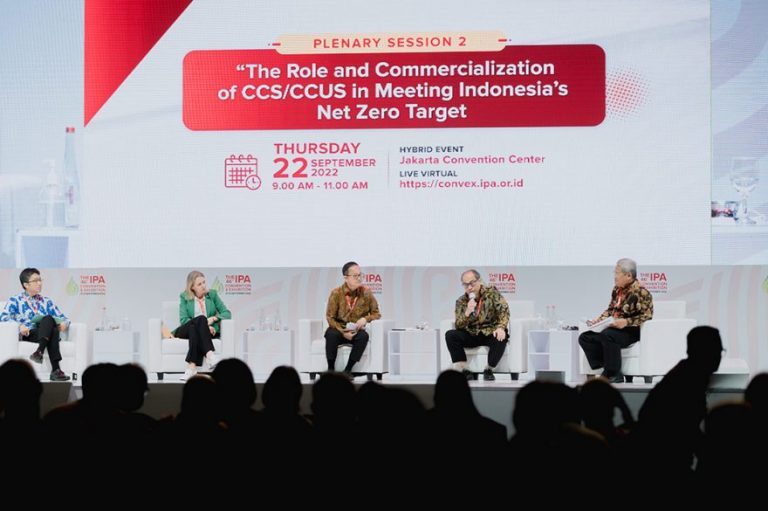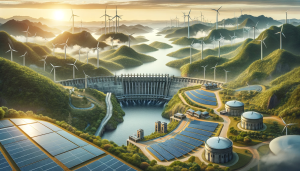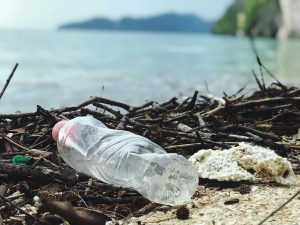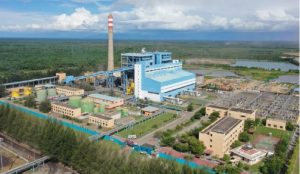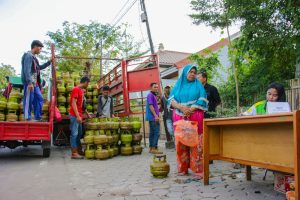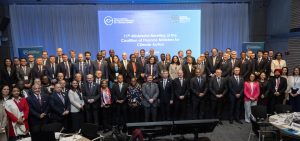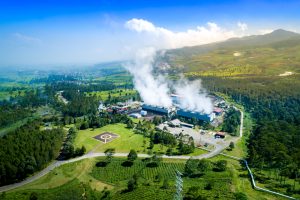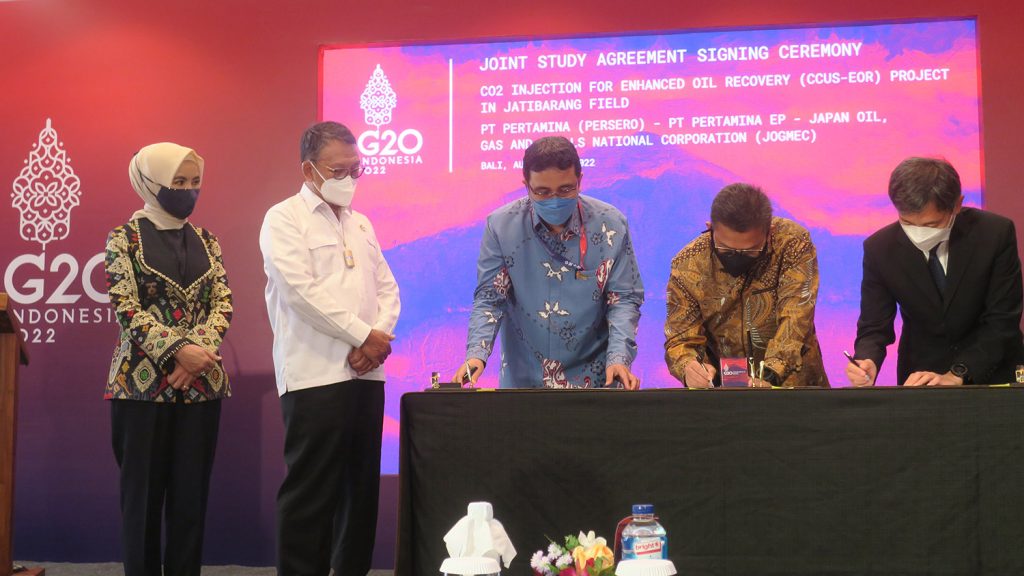
by: Hartatik
Jakarta – Indonesia’s upstream oil and gas industry seeks to reduce greenhouse gas (GHG) emissions from production operations by setting up Carbon Capture Storage (CCS) or Carbon Capture Utility Storage (CCUS). The application of CCS/CCUS technology will help achieve Net Zero Emission (NZE) 2050 and encourage cleaner oil and gas production.
At the 46th IPA Convention & Exhibition Plenary Session II entitled “The Role and Commercialization of CCS/CCUS in Fulfilling Indonesia’s Net Zero Target” at the Jakarta Convention Center (JCC) on 22 September 2022, a number of panelists discussed the importance of CCS-CCUS in energy transition. The technology can reduce carbon emissions by up to 10 percent globally, however, implementation of CCS/CCUS needs to be supported by legal certainty, ease of doing business, and fiscal convenience.
Director General of Oil and Gas at the Ministry of Energy and Mineral Resources (ESDM), Tutuka Ariadji said, Indonesia is in the energy transition stage towards new and renewable energy (EBT).
“This energy transition process will take a long time. Before achieving that, the oil and gas industry still makes a significant contribution in meeting energy needs,” he said. In addition, Ariadji said, gas plays an important role as a transitional energy source with lower carbon emissions.
CCS/CCUS is an important technology in the energy transition, Ariadji argues, stating the reason that this technology can support emission reductions in various industrial sectors. The current application of CCS technology is similar to the beginning of LNG exports in the early 1970s, when only a few countries adopted the technology.
Indonesia, he said, is currently conducting a study related to CCS/CCUS. There are 10 CCS/CCUS study points spread throughout Indonesia, both in the oil and gas field, as well as in factories with high emissions.
President Director of Pertamina Hulu Energi (PHE) Budiman Parhusip said that in the energy mix scheme within the General National Energy Plan (RUEN), the percentage of oil and gas energy is projected to decrease, but the volume will increase. Therefore, oil and gas continues to play an important role in supporting energy fulfillment in the energy transition era.
Furthermore, the supply of oil and gas energy needs to take into account the environmental risks it poses. This is where CCS/CCUS will play an important role as a technology that helps reduce carbon emissions while pursuing production targets. From the corporate side, the development of CCS/CCUS technology can also become a new business area for Pertamina.
“Technical aspects are currently prioritizing the development of EOR and IOR to increase hydrocarbon capture and build partnerships for CCS/CCUS builders,” said Parhusip.
Oki Muraza, Senior Vice President (SVP) of Research and Technology Innovation at Pertamina, said that there are six CCS/CCUS projects in the study process stage that Pertamina is currently working on.
“So far, the most feasible is to use CCS/CCUS technology to implement the Enhanced Oil Recovery (EOR) oil production mechanism. So inject CO2 into the reservoir to increase production,” said Muraza, on the sidelines of the discussion of the G20 parallel event, in Nusa Dua, Monday (29/8).
He added that the six projects that are being carried out by Pertamina are CCS/CCUS Hubs Central Sumatra; the CCS project for Coal to Dimethyl Ether (DME) Plant in Tanjung Enim (South Sumatra); CCS/CCUS Hubs Kutai and South Asri Basin; CCUS/EGR Gundih; CCUS CO2 – EOR Sukowati and finally CCS in Donggi Matindok (Central Sulawesi).
If CCS and CCUS are implemented, said Muraza, new industries can be born immediately and can provide benefits. “This is a bonus we have. When we have CCUS, we will have a low carbon ammonia project,” he said.
However, Muraza said there is support needed to be able to accelerate the implementation of the CCUS project. These include regulations on the implementation of CCS/CCUS from the Minister of Energy and Mineral Resources and Carbon Economy Value (NEK) from the Ministry of Environment and Forestry (KLHK).
Banner photo: Director General of Oil and Gas of the Ministry of Energy and Mineral Resources (ESDM), Tutuka Ariadji speaks in a discussion entitled “The Role and Commercialization of CCS/CCUS in Meeting Indonesia’s Net Zero Target” hybrid IPA Convention & Exhibition Plenary Session II 46 at the Jakarta Convention Center (JCC) on 22 September 2022. (IPA Doc)

